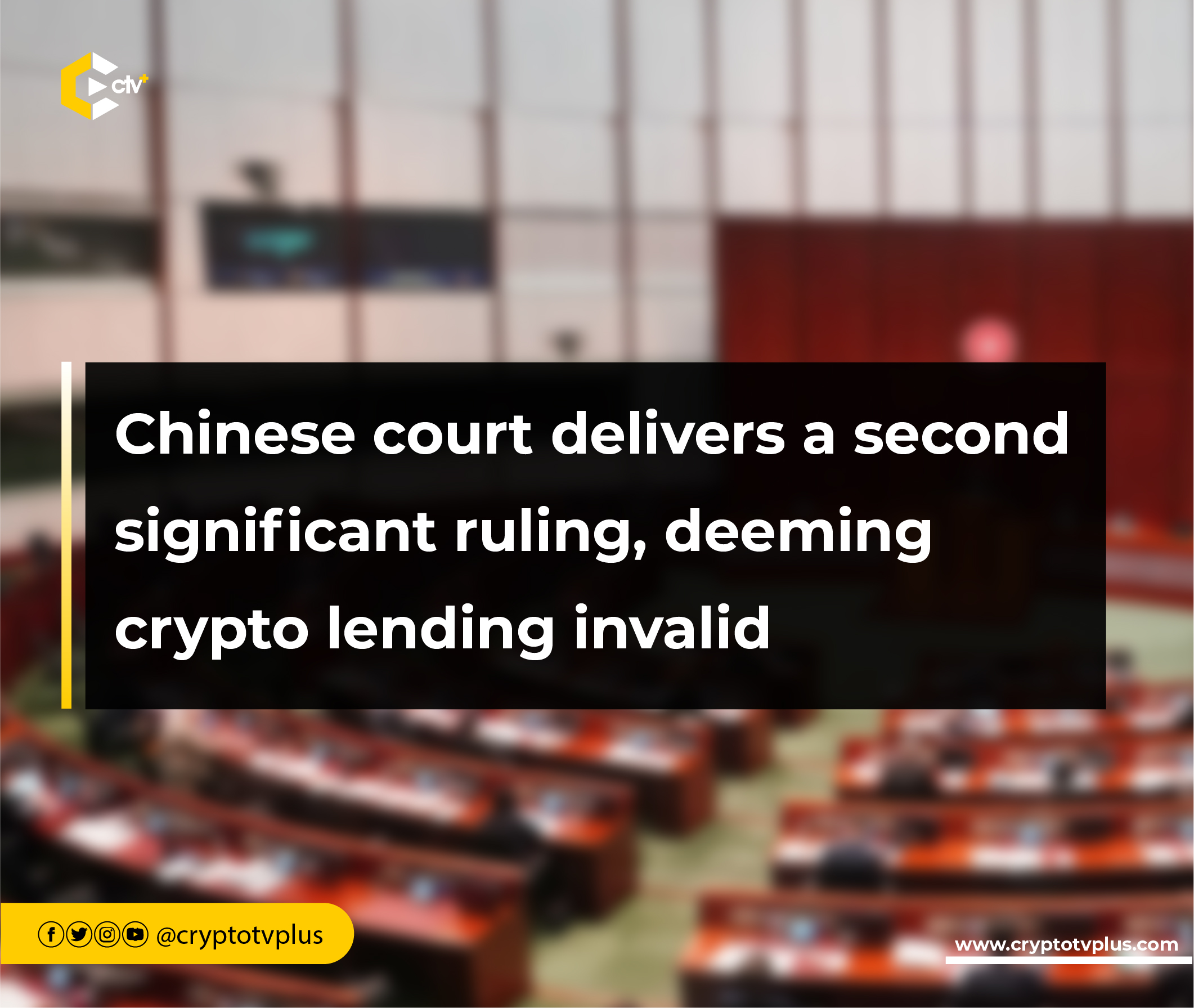News
Chinese court delivers a second significant ruling, deeming crypto lending invalid

The plaintiff, Mr. Ming, might not be able to recover his 80,000 Tether (USDT) loan through the courts due to the borrower’s failure to make repayments.
A second Chinese court has established that the country’s legal system does not protect crypto lending.
Similarly, On October 10, the Nanchang People’s Court released a press statement, declaring that Mr. Ming had provided an 80,000 Tether (USDT) loan to Mr. Gang in April 2021 for trading stablecoins. The loan had a six-month term, but Mr. Gang failed to make the required repayment, which prompted Mr. Ming to file a lawsuit against him.
The Nanchang People’s Court reached a verdict stating that Mr. Ming’s lawsuit against Mr. Gang was unsuccessful due to the court’s jurisdiction not recognizing Tether as a legally issued currency. This decision was made in accordance with China’s stringent legislation regarding cryptocurrency, which influenced the final outcome of the case.
Furthermore, the court determined that Mr. Ming’s lawsuit was not within the correct boundaries of civil litigation since Mr. Ming was unable to fulfill this requirement. Following this, Mr. Ming pursued an appeal, only to have it rejected as well. The presiding judge wrote:
“There are legal risks involved in participating in virtual currency investment and trading activities. If any legal person, unincorporated organization, or natural person invests in virtual currencies and related derivatives that violate public order and good customs, the relevant civil legal actions will be invalid, and the resulting losses shall be borne by them.“
The Chinese government banned cryptocurrencies in late 2021, citing environmental and surveillance concerns.
In August, the Changzhou Zhonglu People’s Court ruled that a $10 million Bitcoin lending agreement was invalid because the lender had no legal recourse due to the borrower’s default and the ban on cryptocurrency in China.
Read also: Astar Network Unveils Plans for its zkEVM Protocol














